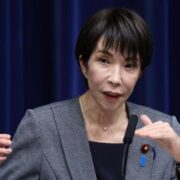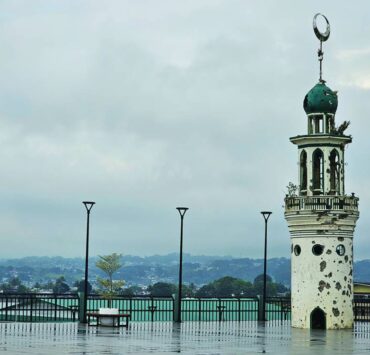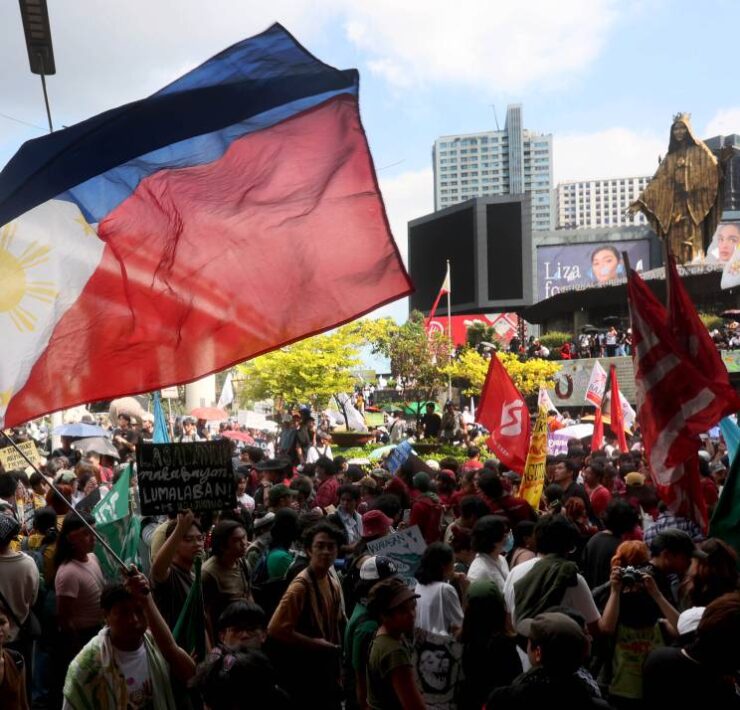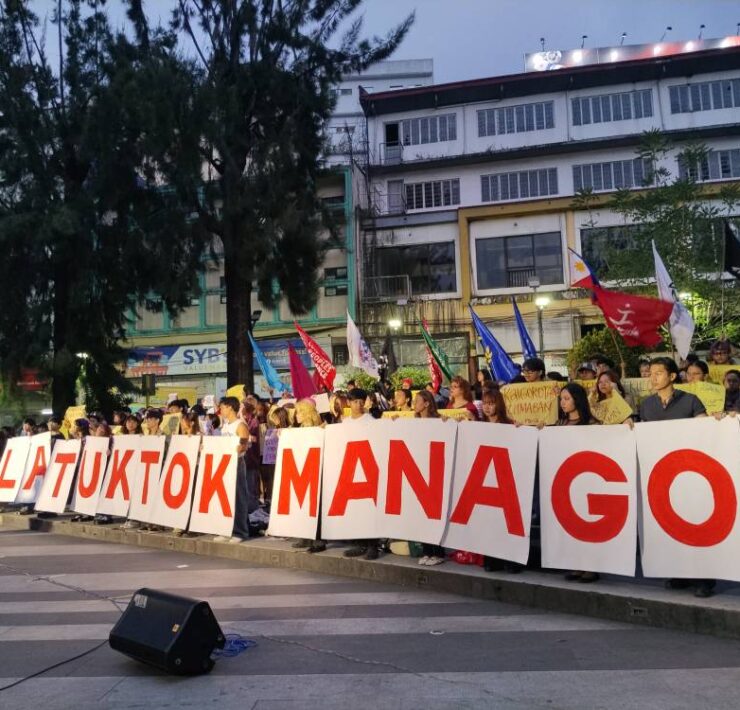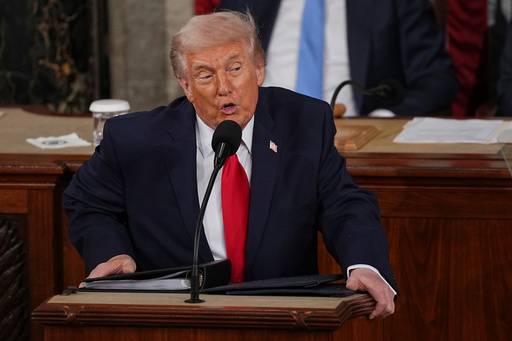Du30 now ‘powerless’? Rights lawyers sneer at release bid
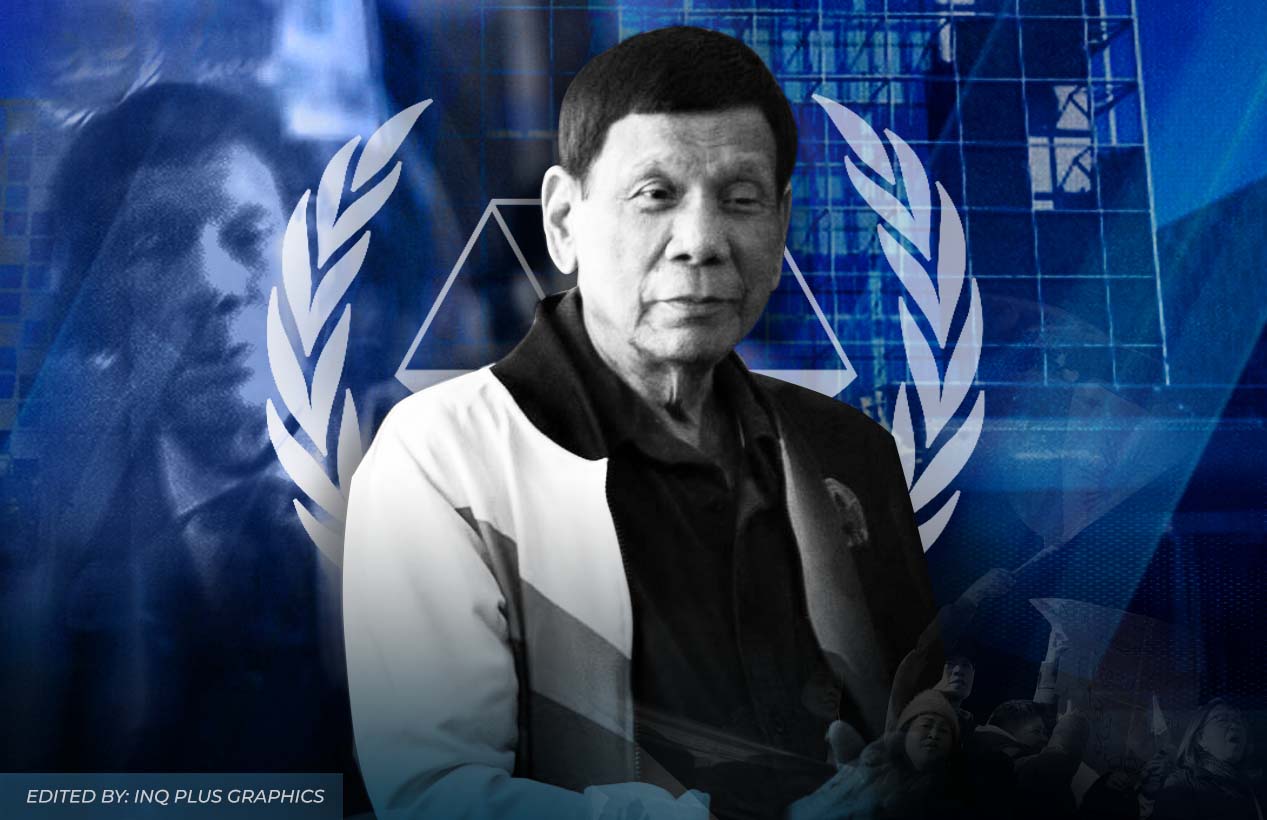
Human rights advocates have questioned the “humanitarian” grounds for ex-President Rodrigo Duterte’s request for temporary freedom in another country, pointing out that the International Criminal Court (ICC) detention facilities in The Hague, the Netherlands, were top-notch and that granting his request could jeopardize the proceedings.
As if by design, On Philippine Independence Day, Duterte petitioned for his “interim release” from the ICC and transfer to another country. The name of the country was redacted in the public release of his petition.
The lawyers for Duterte led by Nicholas Kaufman told the Pre-Trial Chamber (PTC) I in a 16-page request for Duterte’s temporary liberty, said that his being a flight risk and the possibility that he would “continue to commit crimes” remains “hypothetical” as there were no actual instances during his three months in ICC detention indicating this.
They also pointed out that Duterte does not hold the same “influence or power” he had when he allegedly waged his brutal drug war as Davao City mayor and as president.
Duterte is being charged with murder as a crime against humanity for the thousands killed in his antinarcotics campaign from November 2011 when he was still mayor of Davao City until March 2019, when the Philippines’ withdrawal from the Rome Statute, which established the ICC, took effect.
Official records put the number of deaths during his six-year presidency at over 6,200. Rights watchdogs say the figure was closer to 30,000.
Not for grave crimes
The National Union of Peoples’ Lawyers (NUPL) vehemently opposed Duterte’s request for release, saying he could not have “suddenly become powerless.”
Kristina Conti, one of the ICC-recognized lawyers representing the drug war victims in the proceedings, noted that the only precedents that had allowed interim release for detainees were those accused of violating Article 70 of the Statute that refer to “offenses against the administration of justice.”
These include tampering with witnesses and obstruction of justice, which Conti said were “not so grave crimes.”
For Conti and Joel Butuyan, an ICC-accredited lawyer assisting the drug war victims, the phrasing of the defense’s claims that the Office of the Prosecutor (OTP) of the ICC had already agreed to Duterte’s release may have been “twisted” so that it could be interpreted as completely agreeing to his request.
“I think what will happen is the prosecutor will agree provided certain conditions are met. So, it will agree conditional to the fulfillment of conditions,” Butuyan told the Inquirer.
Mum on defense claim
The OTP has not issued any comment on the petition.
“The (OTP) of the (ICC) will file before Pre-Trial Chamber I a response to the Defence’s request for interim release of (Duterte),” it said in an email to the Inquirer. “The prosecution will file a public version which will clearly set out its position on the defence’s application.”
The OTP refused to reply on whether it had accepted the undisclosed conditions of Duterte’s plea.
Conti called attention to the way Duterte and his lawyers were framing their arguments to convince the court to grant his release.
“You will notice how Duterte’s request was worded—that he’s not a flight risk and that he’s not going to commit the crimes further. It’s one of the requirements or grounds to disallow release so he has to positively say that ‘no, I will not continue to commit crimes,’” she said in an interview on Friday.
Four grounds
“It’s like he preempted or countered [possible violations that had not yet happened],” Conti said.
Duterte’s lawyers cited four grounds to convince the PTC I to allow the former president to leave The Hague: that he “will not abscond;” that he “will not imperil proceedings;” that he “will not continue to commit crimes;” and that “humanitarian factors militate in favor of interim release.”
“Simply showing the feasibility, ease, or ‘possibility’ of Duterte’s ability to abscond is insufficient; rather, there must be concrete circumstances demonstrating that the risk of flight is particularly likely,” the defense noted.
“The possibility of ‘continuing with the commission of crime[s]’ within the court’s jurisdiction is highly abstract,” they said.
They also cited Duterte’s advanced age to invoke “compelling humanitarian grounds” in calling for his release. Duterte marked his 80th birthday in detention in March.
The petition that was made public redacted many parts that could have possibly cited the health issues of the former president.
First-rate facility
Butuyan questioned humanitarian grounds for his release because the ICC has a first-rate facility and medical team that could attend to his medical or health needs.
“Just less than three months ago, he was able to go to Hong Kong and he even spoke for more than an hour reportedly in a rally in Hong Kong. And then he came home and when he was arrested, he was examined by a doctor and nothing serious was found,” Butuyan noted.
NUPL, a human rights lawyers’ group, said in a statement on Friday that ICC facilities were “vastly superior” to other prisons and “can guarantee the humane treatment of Duterte.”
Demands of justice
“Humanitarian considerations must not eclipse the demands of justice, especially in cases involving crimes against humanity,” it pointed out.
“Age and health, while relevant, cannot outweigh the rights of victims to see the process of justice carried to its end,” it said.
“That he seeks to relocate to a sympathetic, undisclosed host State under conditions shielded from public scrutiny only heightens the risk. A man once referred to as the most powerful official in the Philippines does not suddenly become powerless,” it added.
Denied due process
Unlike Duterte, the drug war victims were not granted any form of relief and denied due process as they were gunned down in alleyways for allegedly fighting back against the police, NUPL said.
“There is no compelling reason to now extend special consideration to the very architect of these atrocities,” it said.
Butuyan said Duterte’s lawyers may be planning to move him to Belgium, which shares a border with the Netherlands.
Case of Bemba
He said Belgium had hosted detainees released temporarily from ICC detention in the past.
One African leader who was under trial and released to Belgium was Jean-Pierre Bemba, who was head of the Movement for the Liberation of Congo.
He was granted release in August 2009 but the order was reversed in December that year. He was later acquitted of war crimes and crimes against humanity but was convicted of offenses against the “administration of justice” and sentenced to one year in prison. He was freed with time served.
Conti, who is active in victim support groups like Rise Up for Life and Rights and Duterte Panagutin Campaign Network, said that while Belgium was known for welcoming ICC detainees and for upholding human rights, it had also rejected hosting some.
“I don’t know about Belgium now,” she said. “But of course, there are other countries in the area who can very well volunteer.” —WITH A REPORT FROM INQUIRER RESEARCH













